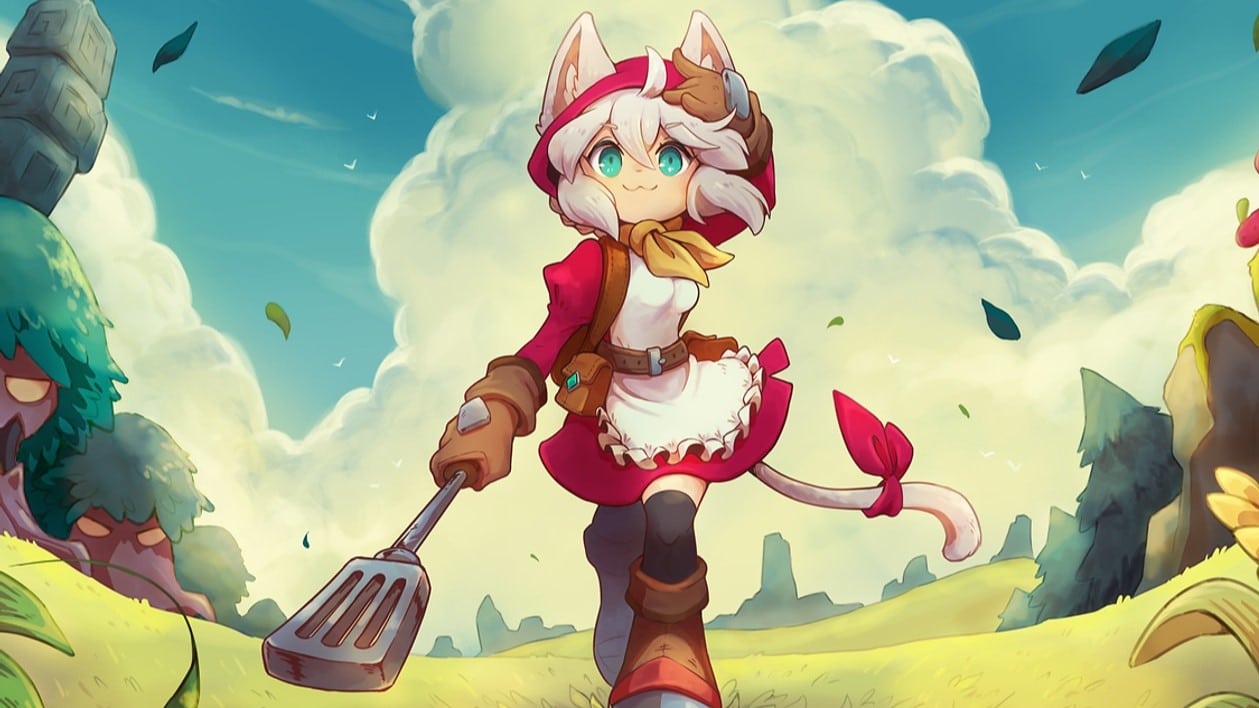The last project from Singapore’s Battlebrew Productions was dropped by its publisher. “We were left heartbroken,” says Shawn Toh, CEO and Design Director. “We were not in the best state financially.” But what seemed to be the lowest moment in the company’s history quickly became a turning point.
Now, many people know the name Cuisineer – it’s one of 2023’s most anticipated indie titles. Its Hades-meets-Diner Dash pitch is not just snappy and memorable, it hits the sweet spot between two very popular game genres: rogue-likes and restaurant management sims. Its charming village vibes, coupled with the cute likeness of the game’s mascot, Pom, has only fuelled Cuisineer’s online interest. Articles have been written about the game, with fanart (both fun and furry) already hitting social platforms. In the last year, Cuisineer has exhibited at almost every games event staple, from Gamescom, to Tokyo Game Show, to PAX Aus – a rare feat for a South East Asian studio.
Back in February, Marvellous Europe and XSEED Games announced they would co-publish Cuisineer for PC via Steam. XSEED Games EVP, Kenji Hosoi said Cuisineer would be “a great addition to our diverse menu of indie games,” citing the game’s bright visuals, adorable characters and unique food-based approach. As the publishers of world-renowned life sim and farming RPGs, Rune Factory and Story of Seasons, it’s easy to see how Cuisineer would fit squarely in their portfolio.
However, as important as it is to share these stories of triumph, the precarious nature of the gaming industry is not lost on us. Cuisineer is not just Battlebrew Production’s success story, it was their Hail Mary. Their last attempt at producing a game together as a team.
Following hearts and stomachs
“We thought: If this was going to be our one last stand, what kind of game would we make?” explains Toh. “Our studio roughly has two halves. One half likes action games in the style of Path of Exile. The other loves cosy simulations like Animal Crossing: New Horizons.”
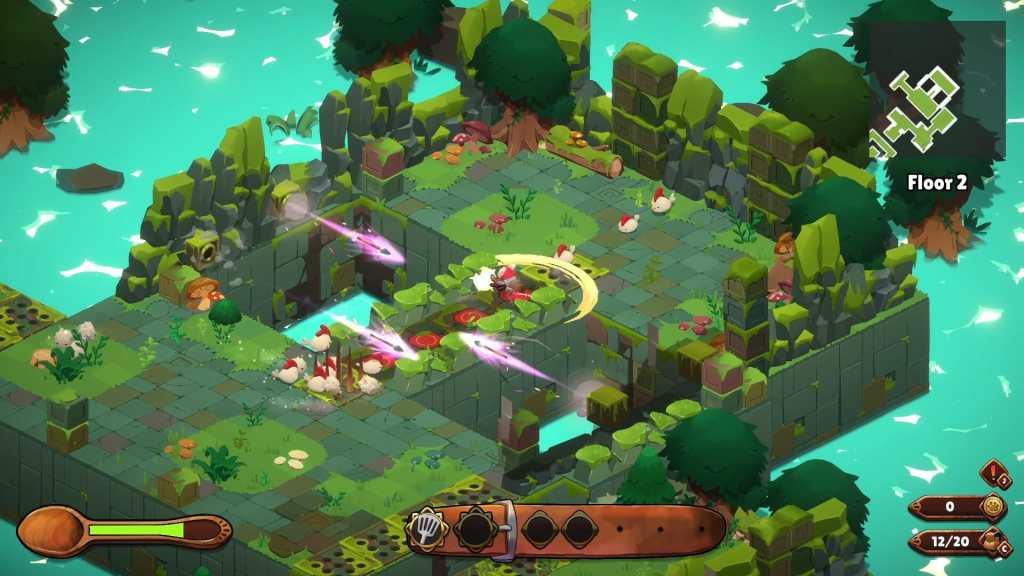
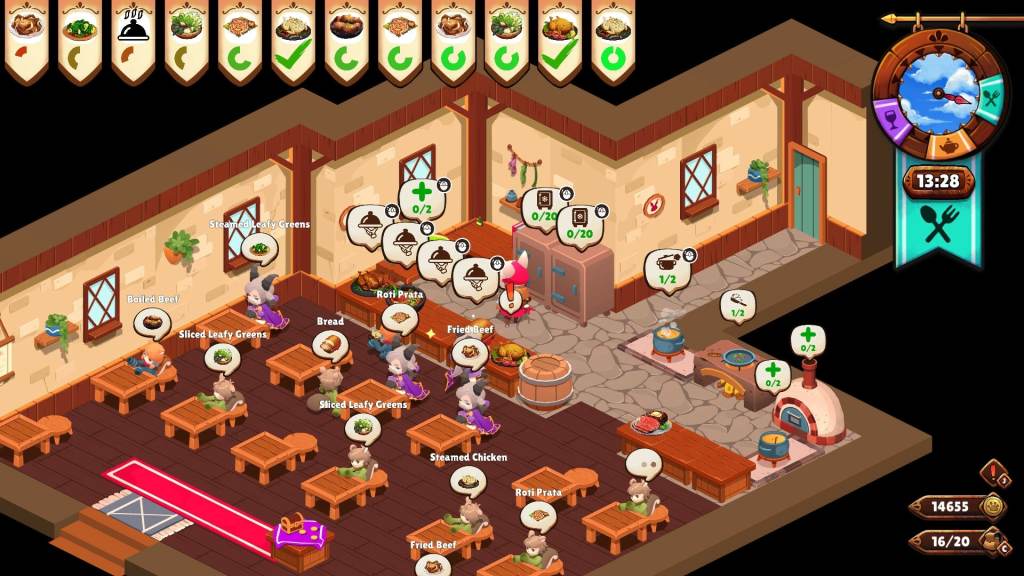
Shawn personally sits in both camps, as someone who enjoys Diablo but who also has a 100% completion rate in Stardew Valley. Games aside, he and his crew at Battlebrew are also true Singaporeans at heart, who live and die by their bellies. And thus, the final element of Cuisineer was included – food.
“During the height of the pandemic, Singapore had a lot of lockdowns in place. We went from being a team that used to not only eat together but cook together, to no longer seeing each other for stretches at a time. Food has always had a lot of meaning for us. It’s a symbol of friendship, companionship and a reminder of better times. We knew we had to incorporate that into what could be our final game together.”

The right ingredients
Production for Cuisineer began in 2021. The game sees you take on the role of Pom, a young adventurer turned restaurateur who has taken over a debt-heavy family business. In order to turn her fate around, Pom goes dungeon-delving, fighting giant chickens and shrimp with cooking utensils to harvest ingredients for the restaurant. Armed with a plentiful bounty, you then put on your server, chef and manager hat to produce delicious dishes for your high-maintenance customers.
The Cuisineer website cites over 100 different recipes sourced from all over the world. Those following the game’s development will likely be aware of Shawn’s overseas adventures as he savours cuisines all humorously in the name of ‘research’.
Southeast Asians might recognise a few local favourites, such as Kaya Jam, (Singapore) Chilli Crab and Roti Prata. As someone from the region, I’ve rarely seen Popiah, one of my Nyonya grandmother’s signature dishes, represented in media, let alone in a video game. Having Southeast Asian representation was a deliberate choice by the Battlebrew team as a nod to their own origins, but you can also find other international dishes in the game, such as Japanese ramen and tempura.
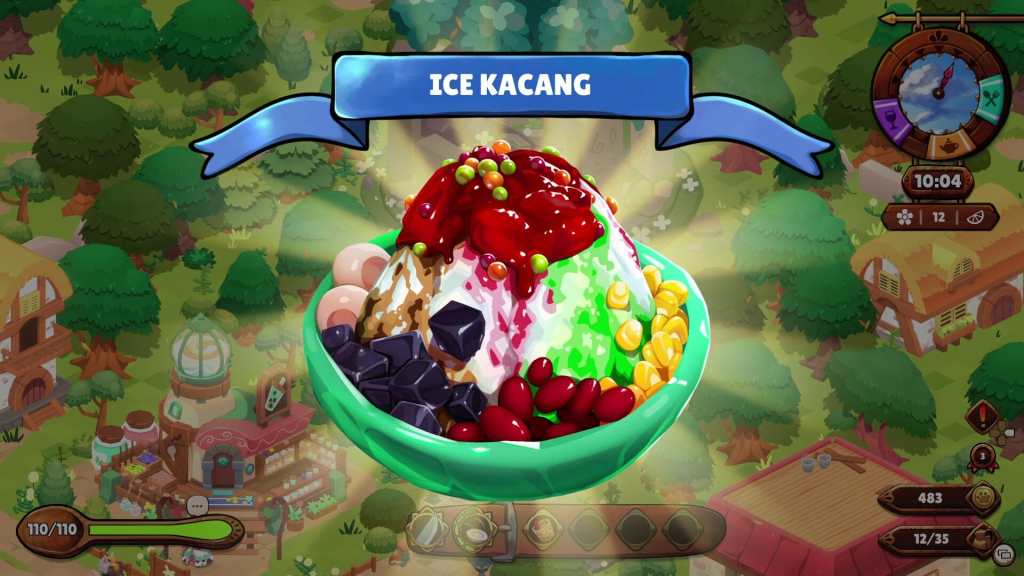
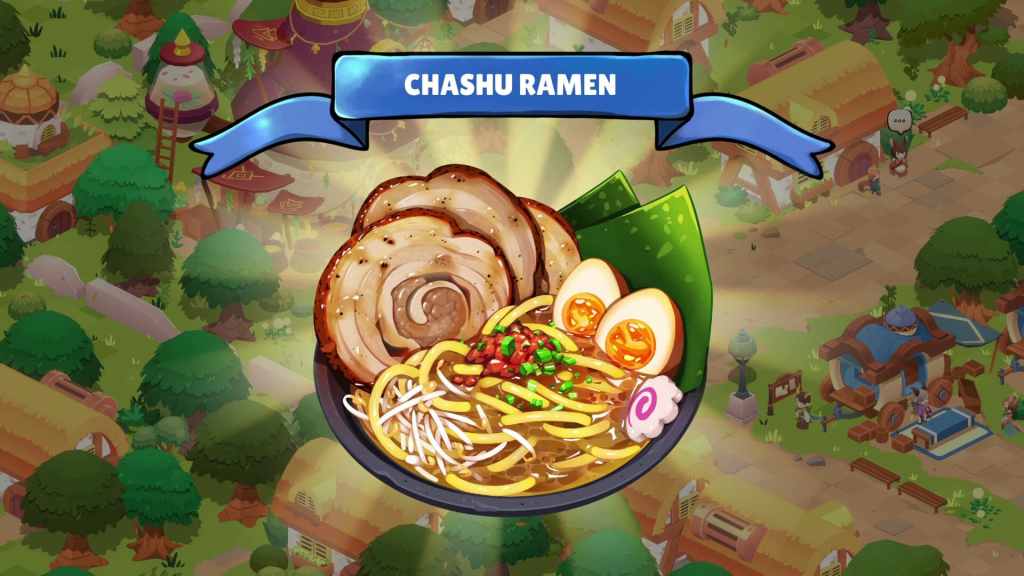
Shawn mentions PAX East 2022 as one of the game’s most pivotal events, where there was an overwhelming interest in the game from the public, other developers and publishers alike.
“We received a lot of publishing offers when we exhibited at PAX East 2022. It was a relief to finally decide on Marvelous. Prior to signing, we looked at how they treated their titles, not just their mainstay IP but smaller ones. How they were able to support indies like Sakuna: Of Rice and Ruin was really inspirational. We can honestly say that it’s been great to work with them throughout this process.”
The battle brigade
Battlebrew Productions has been around since the beginning of 2017. The team is mostly composed of former classmates and alumni hailing from the same game design school, DigiPen Institute of Technology Singapore. Prior to Cuisineer, they worked primarily with mobile games and produced BattleSky Brigade: TapTap, a 3D idle-clicker about building your own town in the sky. This saw the studio pick up several accolades, including the Gamestart Asia 2018 Visitors’ Choice, and a finalist nomination at the SEA Game Awards 2018. A second game in the series, BattleSky Brigade: Harpooner, was part of
Shawn shares that one of the biggest yet most rewarding challenges faced was developing a game for a genre that was entirely new for their studio.

“Nowhere in our portfolio was there an isometric hack and slash game, or a restaurant simulation game. We literally took on two new genres that we’ve never worked on before, and squished them into one [for Cuisineer].”
Southeast Asia continues to be a growing region for video games. In Shawn’s opinion, support from private, as well as government, bodies has gotten better, but more is always appreciated.
“There used to be more, but a lot of government policy has changed and support has largely moved from games to the wider tech sector. I don’t blame anyone, and we’re definitely grateful for support we have received, such as usage of an old co-working space we used to share with other Singaporean game studios.”
“Support needs to come from the local player base as well. Ghostlore is a Singaporean game that came out this year but there wasn’t a lot of news about them. Most Singaporean gamers prefer to play AAA games, but if you look into our sector you’d be really surprised at the quality we can produce. Check out Cat Quest or Valiant Force, these are the kind of games that were exhibited locally, and nobody believed they were made in Singapore.”
Battlebrew Productions has certainly bounced back from adversity with Cuisineer. With fingers crossed, this combination of dungeons and dining will hopefully put the studio and the wider Southeast Asian ecosystem on the video game map.
Cuisineer releases on 9 November 2023 for PC. You can wishlist Cuisineer on Steam.
